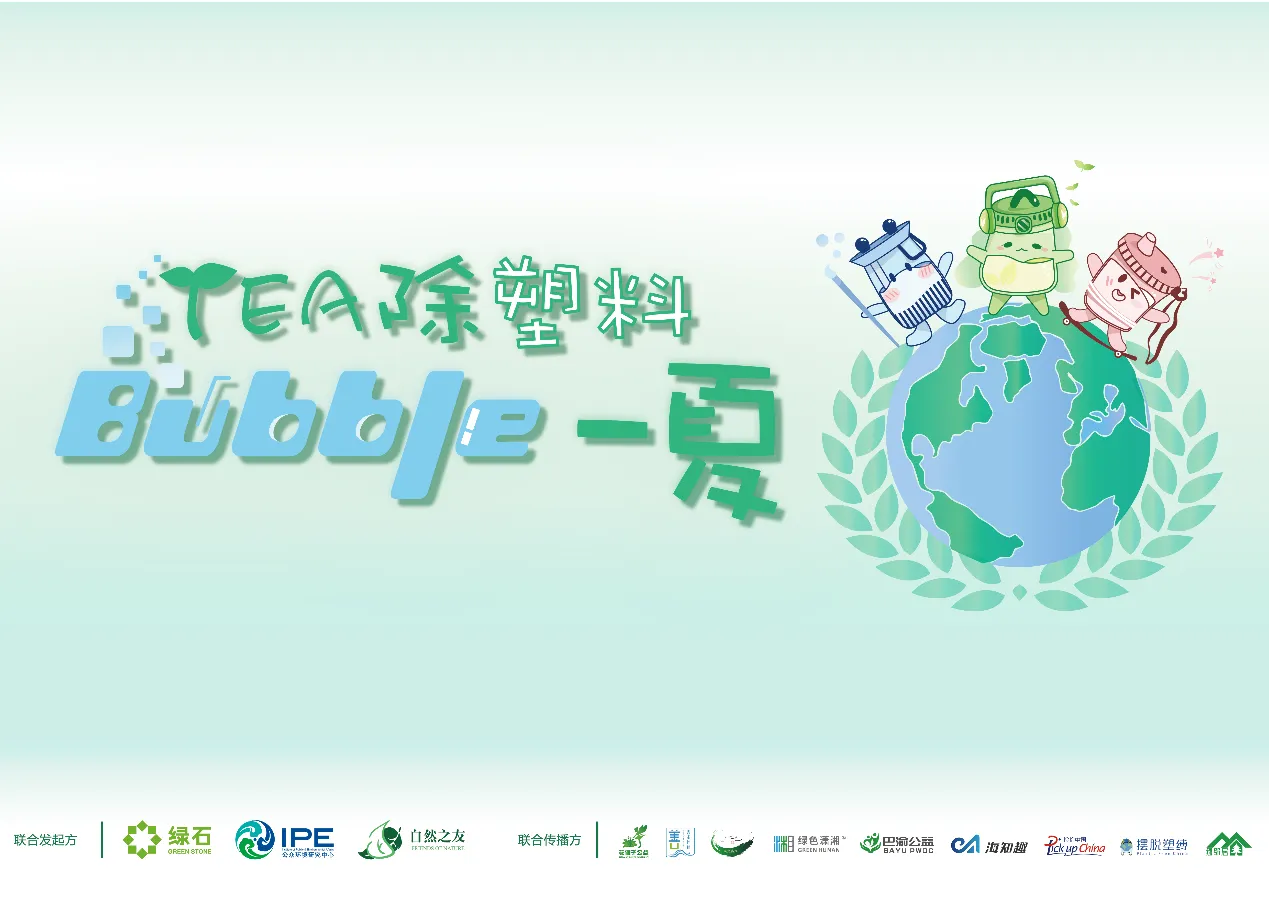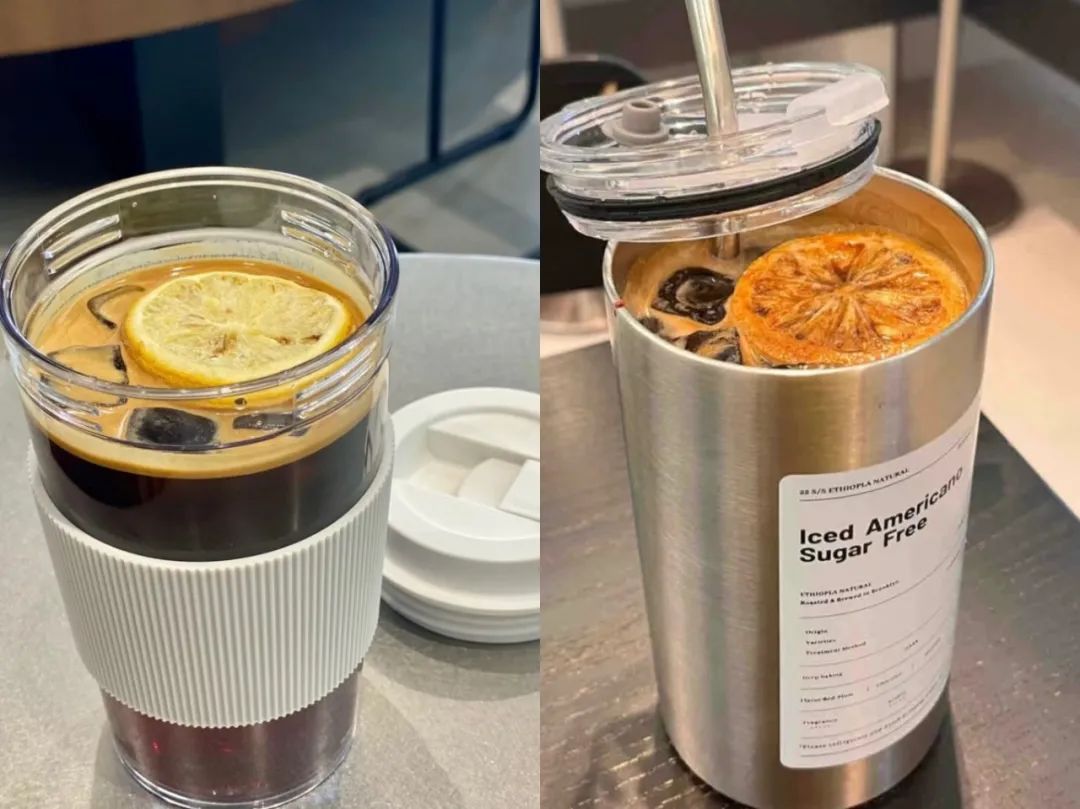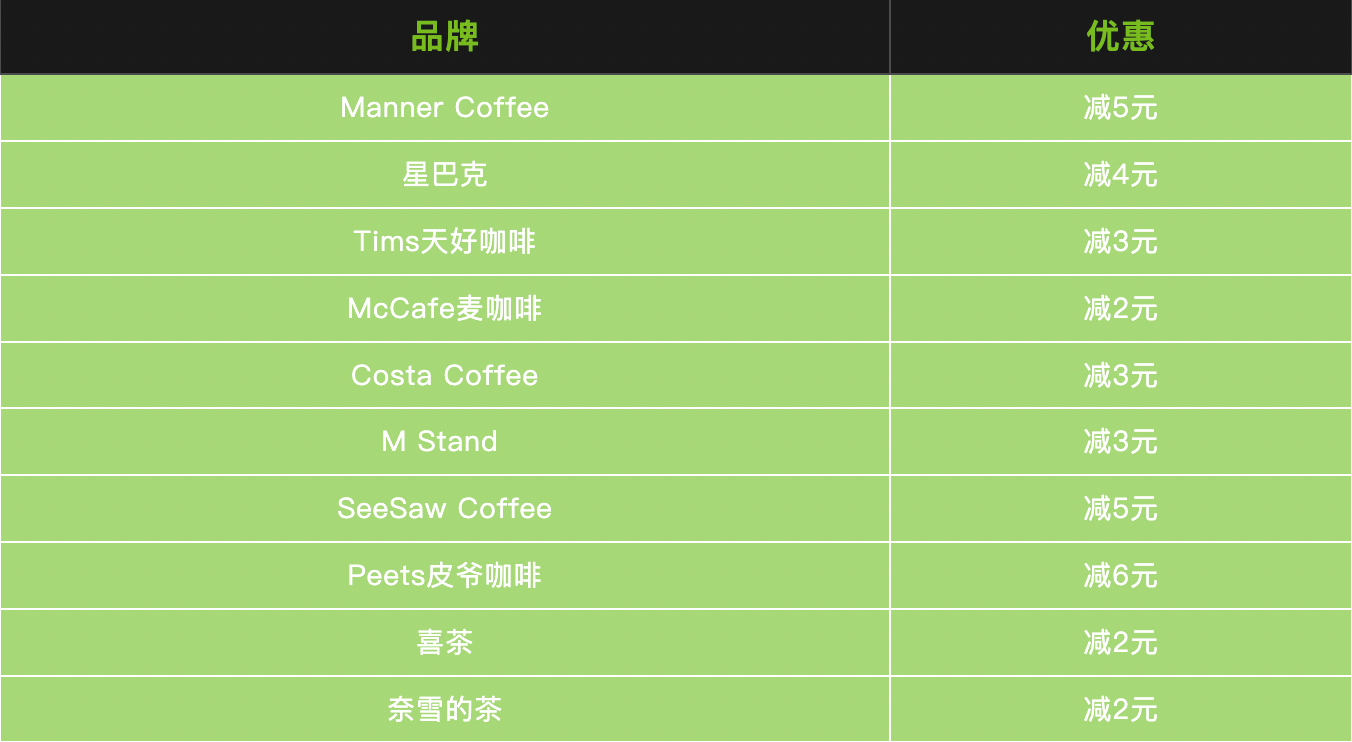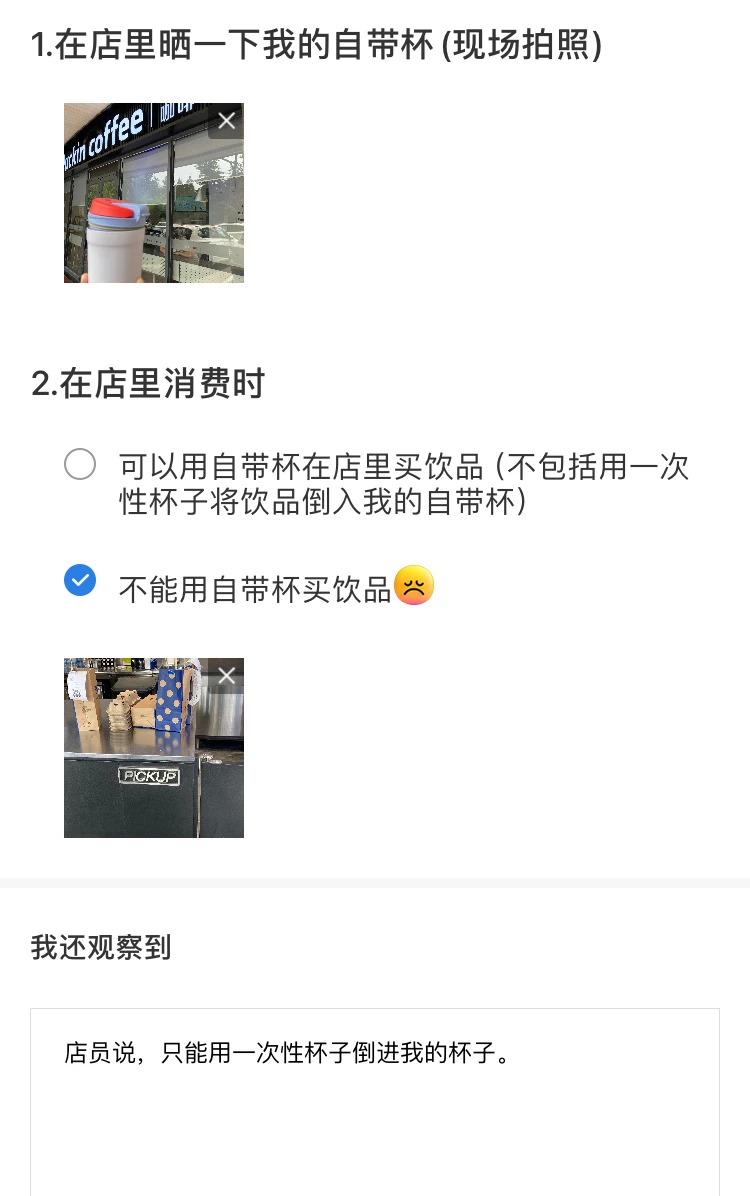It's effortless and saves money! Reduce plastic pollution, starting from bringing your own cup and checking in
On a hot summer day, do you feel refreshed when you have a glass of ice cold drink while you are on a city walk?
Although we have cooled down, the disposable products produced after drinking have become the source of "warming" of the earth. Delicious drinks may be hard to refuse, but we can definitely "say no" for disposable packaging.
Starting from July this year, Friends of Nature, in conjunction with the Public Environmental Research Center (IPE) and the Green Stone Environmental Protection Center, jointly launched a check-in event with your own cups, inviting consumers to bring their own cups offline and try to buy milk tea and coffee in various stores., juice and other freshly made drinks, and check-in can be completed on the "Azure Map" platform.
What are the considerations for this check-in event with your own cup? The first phase of the "Summer Check-in Action Month" is coming to an end. How is the activity progressing? What is the coverage rate of merchants that accept consumers to bring their own cups? Focusing on related topics, the reporter interviewed the person in charge of the event organization.

A cup of beverage comes with an "N-piece set", and use your own cup to help reduce plastic at the source
Having a drink every day or at a party has become a consumption habit for many young people. But when enjoying cups of delicious food, carefully observing the drink packaging in your hand, it is not difficult to find that it uses a large number of disposable plastic products. Many environmentally conscious consumers joked,"I only ordered one drink, but I was forced to consume the 'N-piece set'." Including beverage cups, cup lids, hot lidding films, straws and packaging bags, even though many hot drinks use paper cups, the inside is still covered with a plastic film.
"These disposable items are discarded after a short period of use, which means a lot of resource consumption and uncountable waste." Sun Jinghua, director of the Friends of Nature Waste Reduction Project, told reporters that the amount of disposable plastic products continues to increase with the sale of cups of drinks, which not only causes resource waste and carbon emissions in raw materials, production and other aspects, but also ultimately most of them will enter the waste disposal links such as incineration and landfill, increasing the burden of urban domestic waste disposal. In addition, it may also leak into the environment and cause pollution.

Therefore, reducing the amount at the source is the key. When it comes to reducing the plastic content of tea drinks, bringing your own cup is a good choice. Sun Jinghua said, but from daily observation, the proportion of the public who actively uses their own cups to consume in offline stores is very low. Therefore, this event was launched to call on the public to bring their own cups when consuming offline, and to help them cultivate green consumption habits and reduce the use of disposable items at the source.
"The check-in event with your own cup is not only an attempt at environmental protection, but also an advocacy and promotion of a green lifestyle." Mei Zheran, head of the milk tea plastic reduction project of the Green Stone Environmental Protection Center, told reporters that he hopes to increase public awareness and attention to plastic pollution issues through the check-in event of bringing your own cup, enhance everyone's awareness of environmental protection, and then promote the current beverage industry to develop in a more environmentally friendly and sustainable direction. In addition, the successful development of the event will also form a certain demonstration effect and help encourage more regions, institutions and individuals to participate in plastic reduction actions.
Check-in activities require the use of the "Blue Map" App and Mini programs launched by the Center for Public Environmental Research (IPE) to complete check-in. Shen Sunan, a senior researcher at IPE, told reporters that by checking in on the spot, the platform can generate a "green map of bring your own cup", making it easier for consumers to check which nearby businesses accept and encourage bringing your own cups. Consumers 'check-in activities can also drive and attract more merchants to pay attention and join plastic reduction actions to support green consumption.
"'Blue Map 'has gradually guided ordinary people from paying attention to the environment to participating in environmental protection by setting up casual photography activities that combine online and offline themes. It has become a digital platform for the public to participate in environmental protection activities." Shen Sunan said that the check-in event also helped them complete research on plastic reduction and provided a lot of valuable first-hand information for data analysis and policy advocacy.
More than half of stores support bringing your own cups, but there is still room for expansion
Bringing your own cup to buy freshly made drinks offline can not only reduce the use of disposable items from the source, but also focus on "saving money without effort." It is understood that in order to fulfill their corporate social responsibility for environmental protection, some beverage merchants have taken the initiative to set up certain preferential policies to encourage customers to green consumption behaviors.
For example, coffee brands such as Manner, Starbucks, and Tims Tianhao, as well as tea brands such as Xi Tea and Naixue Tea have set up exemption policies for bringing your own cup to the store, with a maximum discount of 5 yuan. To this end, many netizens on social platforms shared strategies for collecting wool,"You only need to check in for 4 cups to save money for bringing your own cup. When you enjoy delicious food, you can also contribute to environmental protection, not too perfect."

If you only meet the need to drink water when you go out, you can bring your own cup to pick up the water for free. It is understood that most shopping malls are currently equipped with direct drinking water machines, and restaurants will also provide drinking water. You only need to bring a cup to travel.
In addition to some brands that proactively set discounts, what is the coverage rate of other merchants that accept the public to bring their own cups offline? Shen Sunan told reporters that they collected offline check-in situations of consumers in different cities across the country, and when they checked in, they set up several questions, such as: whether merchants had any prompts to accept bring their own cups, whether there were any incentives for bringing their own cups. Measures, the acceptance of bringing their own cups by different brands, etc.
"As of late August, 226 stores were involved in effective hand-on photos, with Beijing accounting for the majority. 61.7% of stores support the use of bring their own cups, and there is still room for expansion. There is also a need to increase publicity and popularization efforts." Shen Sunan introduced that among the stores that accept bring your own cups, only 5.4% of stores put a reminder at the counter to use your own cups. The rest did not have a reminder and only gave feedback that they could use them after asking the clerk.
In terms of bringing your own cup incentives, 2.6% were awarded points, 21.9% were exempted and exempted, and 75.5% were without rewards. The proportion of coffee shops and tea shops accepting bringing their own cups is similar, with coffee shops 67.5%, fruit drinks and tea shops 70.1%, and chain fast food restaurants accounting for only 25.0%.
So what are the reasons for stores that do not support the use of bring their own cups? "Judging from consumer feedback, some merchants do not support the use of their own cups because the capacity and caliber of their own cups are not large enough; others do not support the use of them because they are too busy, limited measuring cups, and the drinks are packaged in advance; There are also many shop assistants said that because there are no relevant regulations in the store, they are worried that food safety issues are uncontrollable and inconvenient to use." Shen Sunan introduced that during the survey, they also regarded "using disposable cups to pour drinks into their own cups" as not supporting bringing their own cups.

What are consumers 'attitudes towards check-in activities? Mei Zhelan introduced that overall, the attitude is positive. "Although some consumers may feel that bringing cups is cumbersome at first, once they experience the environmental benefits it brings, their satisfaction is greatly increased, and many people turn into active supporters. Especially when seeing other people actively participating, it inspires their enthusiasm for participation and environmental awareness."
Bring your own cup advocacy activity is a form of expression for environmental public welfare organizations to promote green consumption. In the past two years, the national level has taken a firm attitude towards promoting green transformation of consumption patterns. Not long ago, the Central Committee of the Communist Party of China and the State Council issued the "Opinions on Accelerating the Comprehensive Green Transformation of Economic and Social Development" to promote the green transformation of consumption patterns from three aspects: promoting green lifestyles, increasing the supply of green products, and actively expanding green consumption. The Third Plenary Session of the 20th CPC Central Committee also clearly proposed to improve the green consumption incentive mechanism and promote the construction of a green, low-carbon circular development economic system.
In this regard, the above-mentioned environmental protection agency stated that the check-in campaign will be carried out for a long time, and will give full play to the role of environmental public welfare organizations in the future, continue to deepen research and practice on green consumption, explore more effective green consumption strategies and models, and further promote Green consumption. At the same time, we will focus on consumer needs and launch richer green consumer products, better green consumer services and more complete new green consumption scenarios.
In addition, it will also strengthen the popularization of sustainable consumption concepts and green consumption knowledge, guide the public to form sustainable consumption habits, shape cognitive recognition of green values, and create a good atmosphere to encourage green consumption.







